By Richard Luthmann
On Halloween, the State of Connecticut will seek to send Paul Boyne to a mental institution, never to be heard from again. He will be drugged up and silenced because certain Connecticut elites consider him dangerous. All of his conduct has been within the bounds of the law.
Virginia blogger Boyne, who has been jailed for over 15 months on charges of cyberstalking Connecticut judges, is a journalist. He publishes the Family Court Circus Blog.
Boyne frequently criticized Connecticut’s judiciary, specifically its handling of family court cases. His posts, while often inflammatory, targeted perceived corruption in the state’s legal system.
Critics argue that Boyne’s situation exemplifies the limits of free speech and highlights how far a state can go to protect its judges from criticism.
Judge Peter L. Brown, the trial judge assigned to Boyne’s case, has pushed the competency issue to the forefront despite the fact that the trial was originally set to begin in September.
Let’s be clear: Paul Boyne is competent. The competency issues are a charade. Listen to this audio or any other conversations with Boyne published by this outlet.
Paul Boyne understands the nature and consequences of the proceedings against him. He understands the law better than many Connecticut attorneys, particularly the First Amendment.
However, his refusal to participate in the evaluation has led the court to question his mental fitness. Legally, he has no obligation to do so, and the state must marshal clear and convincing evidence to overcome the presumption that he is competent.
At the same time, Boyne himself has raised concerns about the competency of his own legal representation.
Connecticut law explicitly shields journalists. Palpably, all evidence gathered under the Connecticut State Police’s initial 2022 warrant - and every warrant thereafter - is illegal fruit from the poisonous tree. And yet Jennifer M. Buyske and Alice M. Osedach Powers, his court-appointed Connecticut attorneys from the Manchester-based Kirschbaum Law Group, LLC, have whistled past that graveyard.
Boyne has openly criticized them for what he sees as a lack of effort in defending him. It’s not hard to see why he says they’re ineffective when Boyne’s prosecution appears to explicitly run afoul of the law:
Section 54-33j - Issuance of search warrant for property of journalist or news organization.
(a) No search warrant, as provided in section 54-33a, may be issued to search any place or seize anything in the possession, custody or control of any journalist or news organization unless such warrant is issued upon probable cause that such person or organization has committed or is committing the offense related to the property named in the warrant or such property constitutes contraband or an instrumentality of a crime.
(b) Nothing in this section shall be construed as limiting the right to subpoena any such evidence if such subpoena is otherwise permitted by law.
Boyne’s lawyers never raised this issue, even though they’ve billed taxpayers tens of thousands of dollars for legal research. But his competency was and is.
The competency question is a charade. It stems from Boyne’s allegations that former Connecticut Supreme Court Justice Joette Katz has been secretly involved in his prosecution. Boyne’s refusal to drop these claims has raised concerns with the court about his mental state, but Boyne insists his accusations are grounded in fact.
AND THEY ARE - “KATZ SPEAK TO ONLY.”
“They’re trying to make me sound delusional just because I’ve been vocal about Katz’s influence,” Boyne said. “But it’s not a delusion if there’s evidence to back it up.”
Boyne is at a loss as to why his lawyers haven’t put this issue front and center. The one thing he does know is that they have a great disdain for the press.
“Jen and Alice, they really don’t like you,” Boyne told Luthmann. “They didn’t even bother hiding it in court.”
Boyne claims his attorneys are more interested in criticizing him than mounting a serious defense, which has only deepened his distrust of the legal process.
That is why, as a press exercise, we asked Paul Boyne to argue his case to the jury. You can hear from him - in his own words - what he would say if given his constitutional right to be judged by a jury of his peers.
We have also imagined Opening and Closing arguments from New Haven, Connecticut, State Attorney John P. “Jack” Doyle, to present a counterbalance to the Boyne narrative.
Fair and balanced. You might not get that in the Connecticut courts, but you’ll get it here. And you’ll even get a chance to vote below as a juror.
Enjoy!
Connecticut State Attorney Jack Doyle’s Opening Argument to the Jury:
Ladies and gentlemen of the jury, good morning. We are here today because Paul Boyne, the defendant, stands accused of cyberstalking, threatening, and harassing public officials in the Connecticut family court system. This is not a case about free speech. It is not a case about political dissent.
This is a case about targeted, repeated, and malicious harassment of individuals who have dedicated their lives to public service—family court judges who must make difficult decisions every day.
Over the course of this trial, you will hear evidence that proves beyond any reasonable doubt that the defendant used his blog, TheFamilyCourtCircus.com, to target and intimidate these judges. You will hear how his posts weren’t mere criticism, but threats meant to instill fear and harass those charged with upholding the law.
The defense will try to make you believe that this case is about the First Amendment. They will attempt to confuse you by presenting this as a free speech issue, invoking the Constitution in an attempt to excuse what are clearly criminal acts.
But make no mistake, this is not a First Amendment case. The law does not protect ‘true threats’ of violence. The law does not protect sustained harassment designed to terrorize others.
You will hear from the victims in this case, including judges Elizabeth Stewart, Jane Grossman, and Thomas Moukawsher, who have all suffered fear and distress as a result of Mr. Boyne’s relentless harassment. These are individuals who serve the public, tasked with making difficult decisions in highly emotional family court cases.
But because Mr. Boyne disagrees with those decisions, he has taken it upon himself to launch a sustained and personal campaign of terror against them.
You will also hear about the investigation conducted by the Connecticut State Police, including Detective Samantha McCord, who has thoroughly documented Mr. Boyne’s actions.
You will learn how Mr. Boyne’s words and actions crossed the line from protected speech into criminal conduct—actions that were intended to incite fear and to silence those who are merely doing their jobs.
We will present evidence, including Mr. Boyne’s own blog posts and the testimony of law enforcement officials, that show a clear pattern of behavior—behavior intended to intimidate and harass these judges, all under the guise of so-called ‘political speech.’ We will also present the legal standard for what constitutes a ‘true threat,’ as well as the criminal conduct under Connecticut’s stalking laws. You will see that the defendant’s actions meet this standard.
As the prosecution, we will demonstrate to you that the defendant did not simply voice disagreement with family court decisions. He escalated his conduct to harassment, intimidation, and threats against those individuals responsible for making legal determinations in cases before them.
We are confident that, at the end of this trial, you will find that the evidence overwhelmingly supports a guilty verdict. Mr. Boyne’s actions have no place in a society governed by the rule of law, and we ask you to hold him accountable for the fear and harm he has caused. Thank you.
Paul Boyne's Opening Argument to the Jury:
Ladies and gentlemen of the jury, I stand before you today accused of crimes that are not crimes at all but rather expressions of my First Amendment rights. Over the past 15 months, I have been incarcerated for what is, at its core, political speech. Speech meant to criticize and expose what I believe to be corruption in the Connecticut family court system.
I have been accused of cyberstalking judges, but as you will see, these accusations are based on the interpretation of my political commentary, not on any real threat.
To begin, I ask you to consider two videos I will show during this trial. The first is from a panel discussion at an Anti-Defamation League (ADL) conference in 2022. At this conference, prosecutors openly discussed ‘leveraging the criminal justice system to combat anti-Semitism.’ One prosecutor even stated, ‘We know we can’t convict them for it, but we can drag them through hell.’
That’s exactly what’s happening to me here. I’m being dragged through hell, not because I broke the law, but because powerful people don’t like what I’ve said about them.
The second video features former Connecticut Supreme Court Justice Joette Katz, who has been involved in discussions about my blog, TheFamilyCourtCircus.com, even though she is no longer a judge or a government official.
In this video, she talks about my blog, criticizing my speech as hateful and dangerous, but what she and the state have failed to do is show you how anything I’ve written constitutes a crime.
I’ll also be entering into evidence all 850 blog posts I’ve written over the past seven years. These posts provide necessary context to my case. They show that my speech, though critical, is political commentary—commentary aimed at exposing systemic failures within the family court system.
Nothing I’ve written is criminal, and the state has not been able to specify a single statement that crosses the line into illegality.
You will hear from Detective Samantha McCord, who is the State’s key accuser in this case. She is interpreting my words, political speech, as threats, without any clear standard or specific examples.
The State hasn’t provided a ‘bill of particulars’—they haven’t told me what words or phrases they claim are illegal. Judge Brown denied my request for this clarification, and yet, here I am, standing trial for speech without any clear accusation of a crime.
[OBJECTION.]
[THE JURY WILL DISREGARD THAT PREVIOUS STATEMENT. MR. BOYNE, YOU WILL NOT DISCUSS THIS CASES’S PROCEDURAL HISTORY HERE. DO YOU HAVE ANYTHING SUBSTANTIVE TO TELL THE JURY?]
In Connecticut, stalking laws cannot sweep up speech. There are three Connecticut cases that have affirmed this—State v. Cuomo in 1993, State v. Jackson in 1997, and State v. Billings in 2022. All of these cases say the same thing: stalking laws do not apply to speech. So why am I here today?
[OBJECTION.]
[THE JURY WILL DISREGARD THAT PREVIOUS STATEMENT. LADIES AND GENTLEMEN OF THE JURY, YOU ARE THE FINDERS OF FACT. AS THE JUDGE, I WILL GIVE YOU THE LAW TO APPLY TO THESE FACTS
MR. BOYNE, YOU’RE ON THIN ICE. PLEASE PROCEED.]
You will also hear about how I’ve been in jail for over a year, denied basic legal rights, and not given the opportunity to defend myself properly. And yet, the state hasn’t proven their case. They’ve simply said, ‘We don’t like what Paul Boyne is saying, so let’s silence him.’
[OBJECTION.]
[THE JURY WILL DISREGARD THAT PREVIOUS STATEMENT. MR. BOYNE, WRAP IT UP.]
At the end of this trial, I trust that you will see the truth. I am not guilty of any crime. I have simply been exercising my right to free speech, and for that, I’ve been punished. I ask you to stand up for the First Amendment and deliver a verdict of not guilty.
Connecticut State Attorney Jack Doyle’s Closing Argument to the Jury:
Ladies and gentlemen of the jury, thank you for your attention throughout this trial. Over the past several days, you have heard overwhelming evidence of the defendant’s guilt. You have seen the blog posts. You have heard the testimony of the victims, public servants who have been harassed and terrorized by Paul Boyne for years. You’ve seen the fear in their eyes as they recounted what they’ve endured—fear that no public official should ever have to feel simply for doing their job.
The defense tells you that this is a free speech case. They say that the First Amendment protects Mr. Boyne’s right to say whatever he wants.
But the First Amendment does not protect threats. It does not protect sustained harassment. It does not protect behavior that is intended to terrorize.
In fact, you heard testimony from Detective Samantha McCord, who walked you through the defendant’s blog posts and his targeted harassment of Judges Stewart, Grossman, and Moukawsher. The language he used was clear. His intent was unmistakable. He wanted to scare them, to intimidate them, and to silence them. His words were not simply ‘criticism,’ as the defense would have you believe. His words were threats.
The law is clear. Connecticut’s stalking laws do not protect speech when that speech is intended to cause fear or to incite violence. And that’s exactly what we have here. Mr. Boyne’s blog was not just a platform for airing grievances—it was a tool of intimidation, a weapon he used to go after those who he believed had wronged him in the family court system.
You heard the testimony of Judge Stewart, who described the terror she felt when she realized she was being targeted by Mr. Boyne.
You heard from Judge Grossman, who spoke about how she feared for her safety after reading the defendant’s posts.
And you heard from Judge Moukawsher, who described the distress of being relentlessly harassed by someone whose only goal was to make their lives unbearable.
You’ve seen the evidence that Mr. Boyne didn’t stop at simply criticizing these judges. He crossed the line—he made it personal. He didn’t just write about their rulings, he attacked them as individuals, insinuating violence and encouraging others to do the same.
And all of this was done with one goal in mind: to silence them through fear.
The defense may try to paint this as political speech, but what you’ve seen here goes far beyond that. This is about a man who used his platform to harass, to threaten, and to instill fear in those who were simply doing their jobs.
This is about ensuring that people in public service—people like these judges—can do their jobs without fear for their safety or the safety of their families.
Ladies and gentlemen, the evidence is clear. Paul Boyne is guilty of the charges against him. He has crossed the line, not once, but repeatedly.
We ask you to return a verdict that reflects the truth of what he has done. A verdict that holds him accountable for his actions. A verdict of GUILTY AS CHARGED.
Thank you.
Paul Boyne's Closing Argument to the Jury:
Ladies and gentlemen of the jury, as we conclude this trial, I ask you to reflect on what has been presented here. The state made you a promise - that they would establish my guilt beyond a reasonable doubt.
Over the past several days, you’ve seen the evidence—or rather, the lack of it. You’ve heard from the state, but they have not shown you how my speech, my blog posts, constitute a crime.
You’ve seen the email where former Justice Joette Katz, a private citizen at the time, was directing law enforcement to investigate my blog. Why is she involved in this case at all? She’s not a judge anymore. She’s not a government official. Yet here we are, with her name all over this investigation, influencing the prosecution against me.
And I subpoenaed her as a witness, but it was disallowed. The Connecticut system has protected Joette Katz the entire time.
[OBJECTION.]
[THE JURY WILL DISREGARD THAT PREVIOUS STATEMENT. MR. BOYNE, NO FURTHER OUTBURSTS OR YOU’RE FINISHED.]
You’ve also seen that the state has not given you a clear reason why I’m on trial. They haven’t told you which words I wrote that are supposed to be criminal. Instead, they’ve thrown around terms like ‘cyberstalking’ and ‘terrorizing,’ but they haven’t shown you how my criticism of judges and the family court system meets the legal definition of those crimes.
Remember the three Connecticut cases I mentioned—Cuomo, Jackson, and Billings. These cases make it clear that the state cannot prosecute speech under stalking laws. My speech is political. It’s harsh, yes, but it’s protected by the First Amendment. I have the right to criticize public officials, including judges. That’s what this country is built on—freedom of speech, freedom to criticize the government.
The state wants you to believe that I had an intent to terrorize these judges. But as you’ve seen, my intent was to expose what I believe is corruption in the family court system. These judges are public officials. They should be able to handle criticism. Instead, they’ve used their power to silence me, to lock me away for speaking out.
Does Jack Doyle really believe that I or anyone else is going to fly a F-35 fighter jet or a B-52 bomber over a Connecticut judge’s house? The State Attorney says I am crazy, but Jack Doyle is the one who should leave here in a straight jacket.
[OBJECTION.]
[THAT’S IT MR. BOYNE. FINISH UP.]
Ladies and gentlemen of the jury, I’m on trial for my life. You can see that. But this trial is about more than just me. It’s about the First Amendment. Truly.
It’s about whether we, as a society, are willing to tolerate dissent. Are we going to allow the government to silence critics by calling them criminals? Or are we going to stand up for the right to free speech, even when that speech is unpopular?
I ask you to deliver a verdict that upholds the Constitution. I ask you to find me NOT GUILTY, not just for my sake, but for the sake of free speech in this country.
Thank you. God bless you. And may God continue to bless the United States of America.


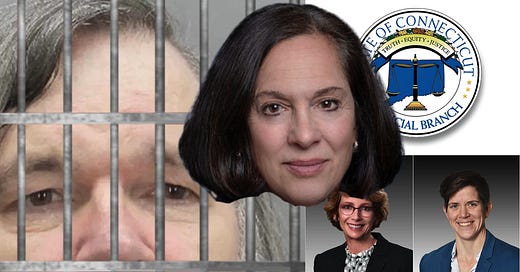





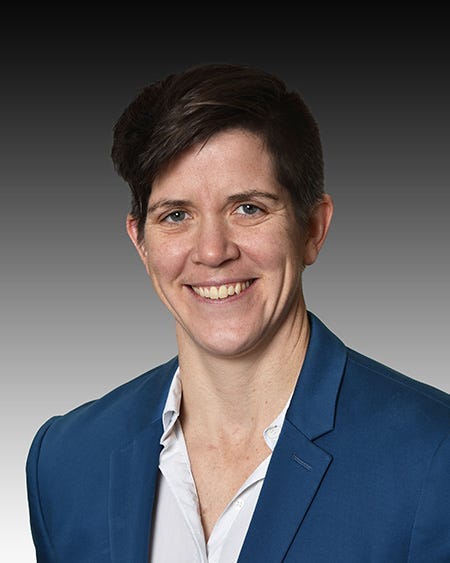

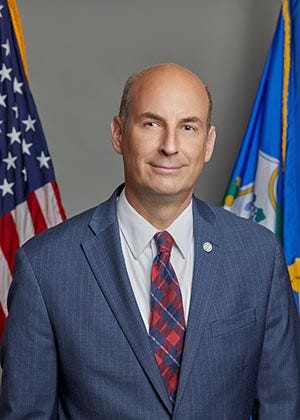










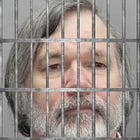

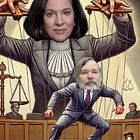


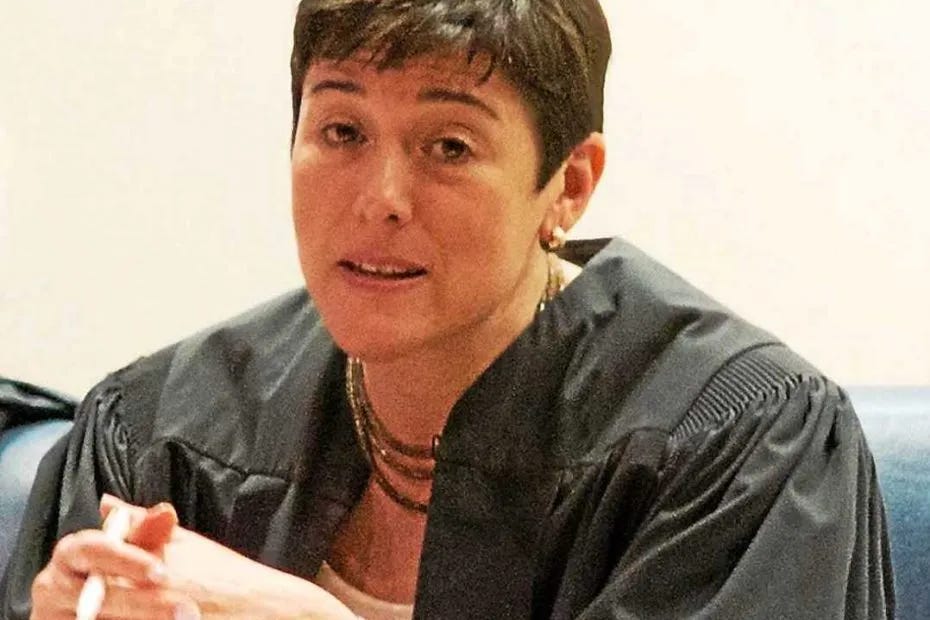
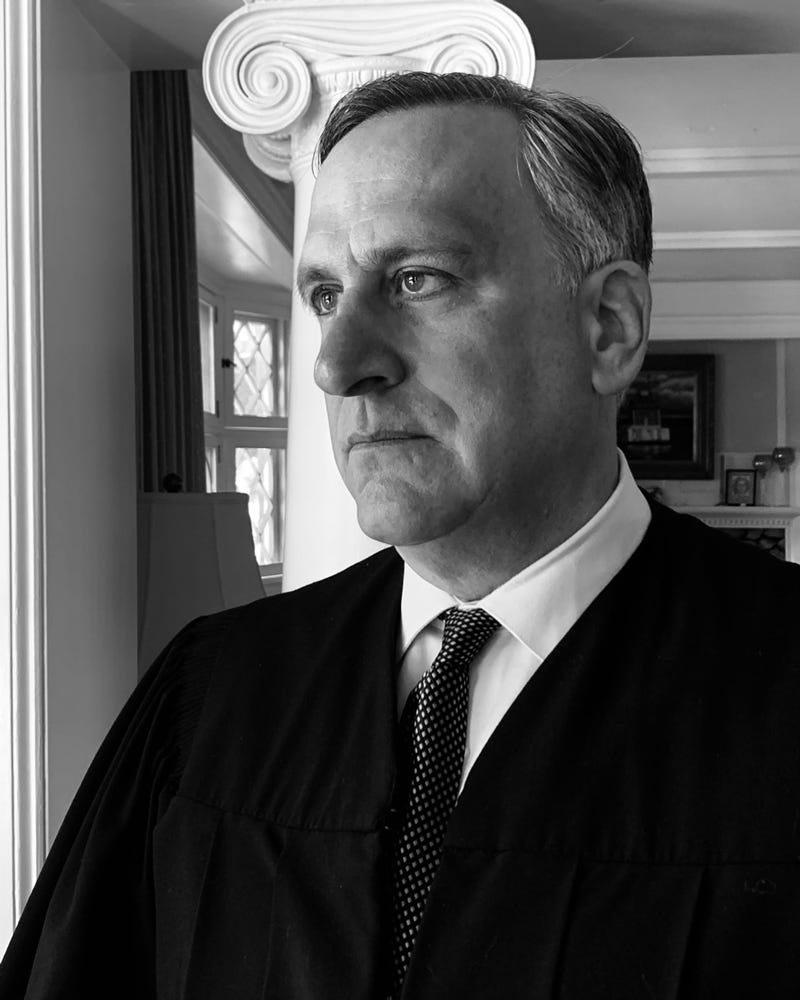


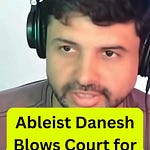







Share this post